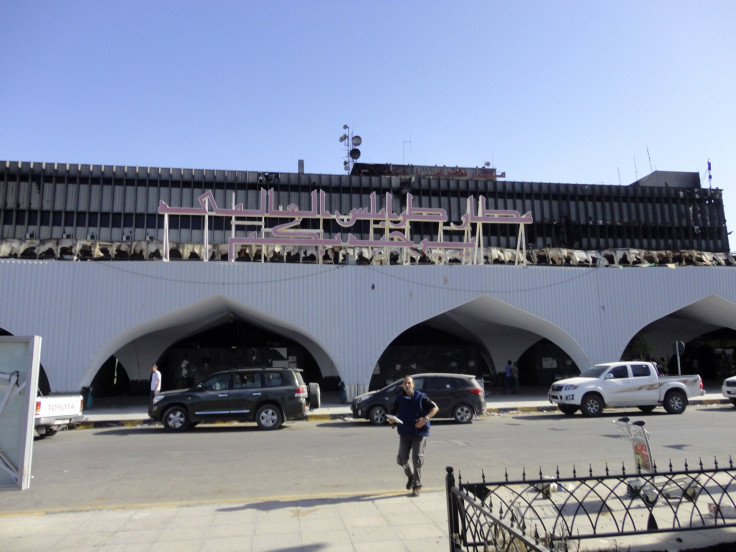Libyan Planes Denied Permission To Enter Egyptian Airspace; Egypt Refutes Claim

A Libyan commercial plane due for Istanbul was forced to return to Tripoli on Tuesday after it was denied permission to fly over Egyptian airspace, Libyan officials said. Egyptian authorities denied that permission had been withheld.
Egypt's state-owned newspaper al-Ahram reportedly quoted the civil aviation minister, Hisam Kamal, as saying that there was no Libyan plane trying to enter Egyptian airspace. "No Libyan airline asked for an overfly permission," he told the paper, Reuters reported.
However, Libyan Airlines posted on its website that the plane took off for Istanbul, but was turned away after Egyptian aviation authorities told the carrier it could not pass over Egyptian airspace.
Libyan planes attempting to reach Turkey need to fly over Egypt, as the previous route over Greek Cyprus has also been closed since the European Union imposed a ban on Libyan planes over their airspace in December, citing security concerns, Middle East Monitor reported.
Morocco had also announced Monday that it would ban its airspace to Libyan planes, as well as suspend all flights to the embattled country, Reuters reported. Morocco’s Royal Air Maroc had already stopped flights in July, when several competing factions started vying for control of Tripoli airport.
In August, the airport fell to Fajr Libya (Libya Dawn), an Islamist group that rejects the authority of the Libyan government, Agence France-Presse reported. Fajr Libya has reportedly been linked to ISIS.
Turkish Airlines briefly restarted flights last year to the city of Misrata, a Fajr Libya stronghold located nearly 116 miles east of Tripoli, but stopped flights in January due to repeated attacks on the airport. The Libyan government carried out airstrikes on Misrata in December, Al Jazeera reported.
Libya’s increasing isolation comes as concerns grow over the presence of ISIS in the country. On Monday, Egyptian and Libyan authorities confirmed that they had launched attacks on ISIS targets in the country. The bombings came in response to an ISIS video showing the beheading of 21 Egyptian Christians, which also prompted Egypt’s president to demand an international intervention in the country.
© Copyright IBTimes 2024. All rights reserved.











